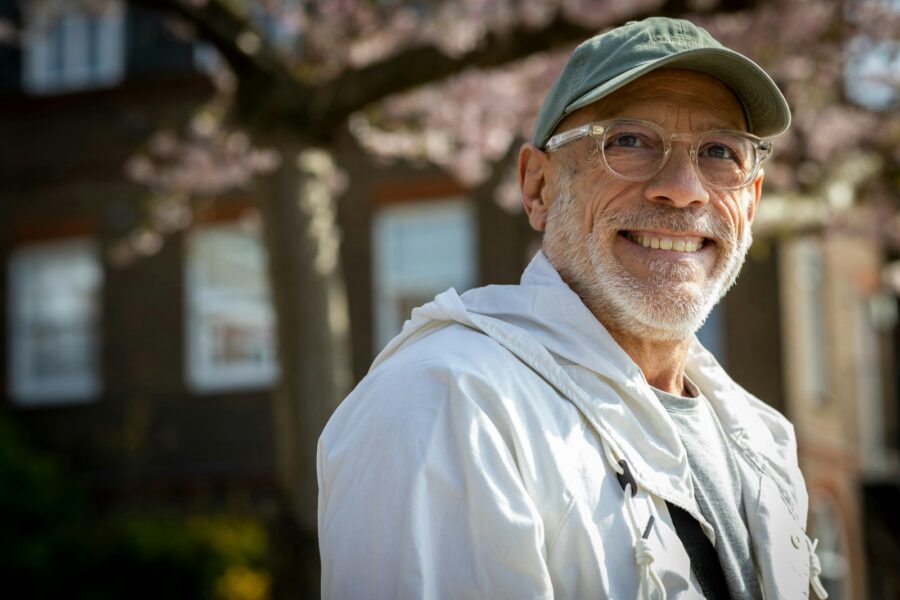In what’s been dubbed Britain’s ‘great unretirement’, tackling age discrimination and ageist attitudes that sadly still run deep through the veins of society and workplaces is crucial. Fear and uncertainty around the cost of living has driven many over the age of 50 back into the world of work. By next year, it’s predicted that no fewer than a third of the working population will be aged 50 and over.
Given many employers are currently desperate to retain and attract employees amid current labour shortages, there’s huge potential to be gained from meeting the needs of the older workforce demographic. Among other priorities, addressing these challenges is essential for harnessing the full potential of the ageing workforce.
Age discrimination is hiding in plain sight
Ageism is an inescapable part of life. We’re bombarded with ageist messaging and microaggressions every day. Birthday cards mocking anyone over the age of 50 for getting older and unashamedly declaring they’re “over the hill” are so common that many people wouldn’t think twice about them.
In fact, ageism is so embedded in our society that, despite being cited in some studies as the most widespread form of workplace discrimination in the UK, many older people themselves accept it as the norm. Across the board, more than 40% of people have never even thought about it before and one-in-ten people believe it doesn’t exist.
In workplaces, there has long been a perception that older employees cannot “keep up with the pace”, are resistant to change, are weak performers and are unable to learn new solutions and technologies. According to research, one in five people aged 50 and over thought that others saw them as less capable due to their age.
Needless to say, this is baseless and not credible – there is no consistent evidence that older workers are less productive than younger workers. In fact, research has shown the opposite – people aged over 50 actually improve workforces, making them more innovative and productive.
Although it’s clear a lot of the judgements and assumptions about older workers are misplaced, it doesn’t stop them from having a detrimental impact on the individuals who endure them.
Let’s not forget that intersectionality with gender, race or other protected characteristics can have a significant impact on the experience of older workers. For example, a study covering nine European countries found that access to training opportunities was affected by the interaction of both age and gender, with older female workers the most disadvantaged.
The link between age discrimination and poor mental health
Ageism is often dismissed as being harmless, but in reality it is strongly related to poorer mental health.
People who endure ageism may feel isolated and useless, lack self-confidence and self-esteem, experience depression and internalise negative ideas about ageing.
It is, perhaps, unsurprising then that older workers are the least likely to feel safe, respected, valued and understood by their colleagues and managers.
Despite mental health challenges being common among older people – 75% of people aged 65+ have experienced significant anxiety or low mood at least once since turning 65, with depression affecting 40% of older people in care homes – a new report – Mental Health in Later Life – has highlighted that support for this age group is widely overlooked.
In the report, the Centre for Mental Health and Age UK identified a “pressing need to tackle ageist assumptions and expectations about mental health in later life” and pointed to a “pervasive sense of pessimism and inevitability that normalises poor mental health” among older people.
Among other factors, the normalisation of poor mental health among older people stops them seeking or being offered help.
So, how does this translate in the workplace? Well, it’s no secret that poor mental health is associated with lost productivity and greater rates of absenteeism.
To date, there’s been a tendency for employers to prioritise support for younger demographics, particularly those transitioning from study to the world of work – given the worrying rise in poor mental health among young people has dominated research and headlines, this is, perhaps, not surprising.
But with record numbers of older people in the workplace and four generations needing to work alongside each other, organisations must ensure they step-up on age inclusivity, to avoid individual and organisational harm.
The key to building an age-friendly workplace
Employees in every organisation will have different needs and, therefore, there is no one-size-fits-all solution here.
But supporting an ageing workforce is now considered business critical by many, and if employers are to benefit from the wealth of skills and experiences these workers bring, they must address ageism head-on.
Given how complex this issue is, the most successful organisations will be the ones that take a systemic and wide-ranging approach.
It’s really important that employers start with a solid understanding of their starting position – by undertaking an age-related audit and consider the needs of all their employees.
Employers would benefit significantly from getting to know their older workers and truly understanding – rather than assuming – their needs, giving respect and support, and finding out what drives, motivates and makes them happy.
Above all, building an age-friendly culture and a truly inclusive environment is absolutely essential on the mission to help older workers speak up and speak out.
Education – for all employees but particularly managers who have a huge influence on an individual’s experience in the workplace – plays a central role in that. Equality and diversity training – of which age is a core part – can help to stamp out ageist attitudes across the workforce, and, in turn, lessen the mental health impact on those at the sharp end of discrimination.
The business and human case for being an age-friendly employer is inarguable. Most employers now recognise the return on an inclusive workforce, but few have taken the action on integrating the ageing workforce into that.

Michelle Robinson Hayes
Michelle is a leading expert in workplace mental health and is passionate about helping employees overcome their mental health challenges. She supports organisations with education and training, and equips employees with the tools to live healthier and happier lives. Michelle holds professional memberships with the BACP, and NCPS.


